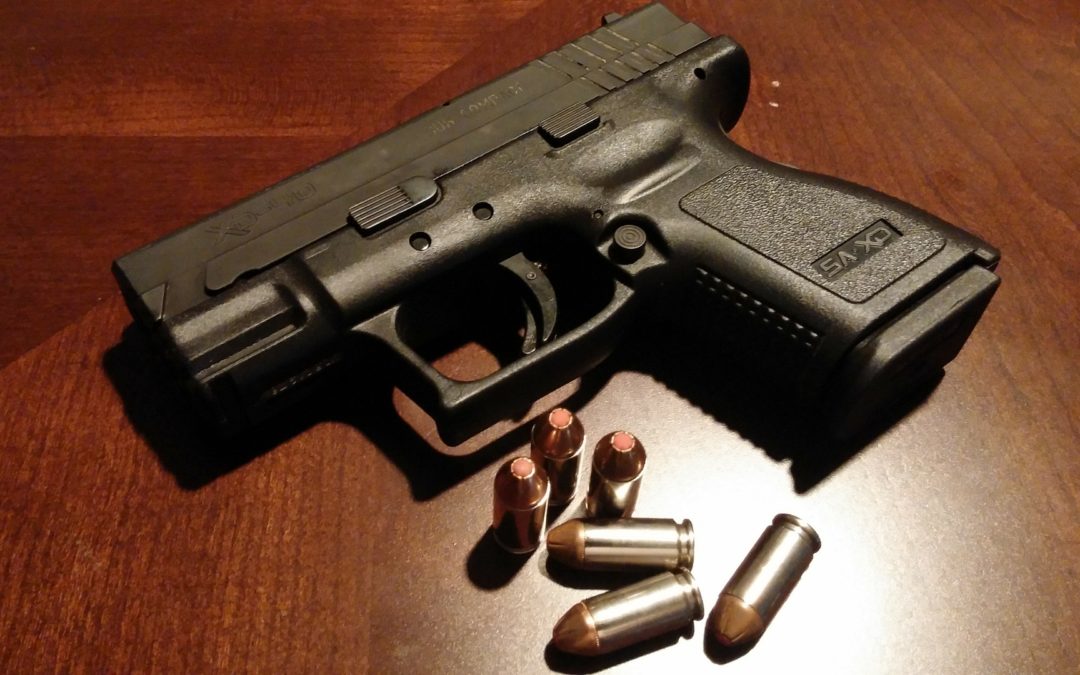From time to time, the question comes up, can a person who cannot pass a background check to purchase a firearm, legally possess the firearms he already owns? The answer lies in the federal legislation that regulates firearm purchases and possession, chiefly 18 U.S. Code § 922, part of the Gun Control Act of 1968. (Yes, it’s almost 50 years old).
When purchasing a firearm from a dealer, a background check will advise the dealer to proceed, delay or deny the transfer. “Delay” will be the subject of a later article. If the transfer is denied, the buyer may appeal. The buyer will then be informed of the reason for the denial. Many times, there is a mistake in the records. This could be when the buyer realizes there is a problem with something in his past.
Under § 922(d), firearms dealers and individuals may not sell or otherwise dispose of any firearm or ammunition to any person knowing or having reasonable cause to believe that the buyer is any of the following:
a person under indictment for or convicted of a crime punishable by imprisonment exceeding one year (but not offenses pertaining to antitrust violations, unfair trade practices, restraints of trade, or other similar offenses relating to the regulation of business practices);
a person who is a fugitive from justice;
a person who is an unlawful user of or who is addicted to a controlled substance;
a person who has been adjudicated as a mental defective or who has been committed to a mental institution;
an alien who is unlawfully in the United States or who has been admitted to the United States under certain nonimmigrant visas;
a person who has been discharged from the Armed Forces under dishonorable conditions (note this does not include “other than honorable” or “general” discharges);
a person who, having been a citizen of the United States, renounces his citizenship;
a person subject to a court order of protection, as defined by the statues;
a person who has been convicted of a misdemeanor crime of domestic violence.
Another part of the same statute, § 922(g), makes it crime for the same classes of persons to possess a firearm or ammunition, with one exception. Under § 922(g)(1), the prohibition against possessing a firearm does not include a person under indictment for a crime punishable by imprisonment for over one year.
The difference between § 922 (d) and (g) is that a person under indictment is not prohibited by this statute from possessing firearms that he or she might already have. The indictment will prevent the person from passing a background check to acquire a firearm from a licensed dealer1.
A person under indictment for a crime punishable by imprisonment for over one year is also subject to § 922(n), which prohibits the person from shipping or transporting a firearm in interstate or foreign commerce.
In addition to the federal prohibitions on sales, Tennessee prohibits firearm sales to persons convicted of stalking, violation of an order of protection and persons who are addicted to alcohol. Tenn. Code Ann. §39-17-1316(a)(1). These three situations are not included in Tennessee’s prohibitions against possessing a firearm under Tenn. Code Ann. §39-17-1307.
Bottom line, if a person is prohibited from receiving a firearm from a dealer, in most instances they are probably prohibited from possessing any firearm or ammunition. If a buyer is turned down when trying to purchase a firearm, it is important to follow-up with an appeal and find out why the sale was denied. The problem can be a mistake in identification, such as a felon with a similar name and date of birth, or a mistaken classification or disposition of a criminal charge. There could be something in the buyer’s past that needs to be clarified to avoid being charged as a prohibited person in possession of a firearm.
If you would like to speak to James Wager on this or any other matter, he may be reached at (865) 546-9321.
1 It is important to note that the person under indictment may also be prohibited from possessing a firearm under the conditions of bail or pre-trial release. Violation could mean jail until the case is resolved.
RELATED POSTS:

James E. Wagner concentrates his practice in areas such as personal injury litigation, workers’ compensation, toxic tort litigation, products liability, firearms law, probate, estate planning and insurance. His varied legal experience helps him analyze and resolve issues in all areas of practice for his clients. He has been privileged to represent many of the same clients over my entire career and handles each case with a view toward a long-term relationship. James provides his clients with reliable, dependable service.





